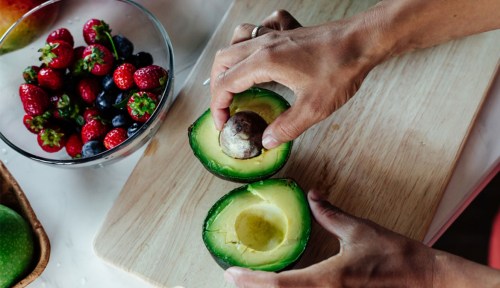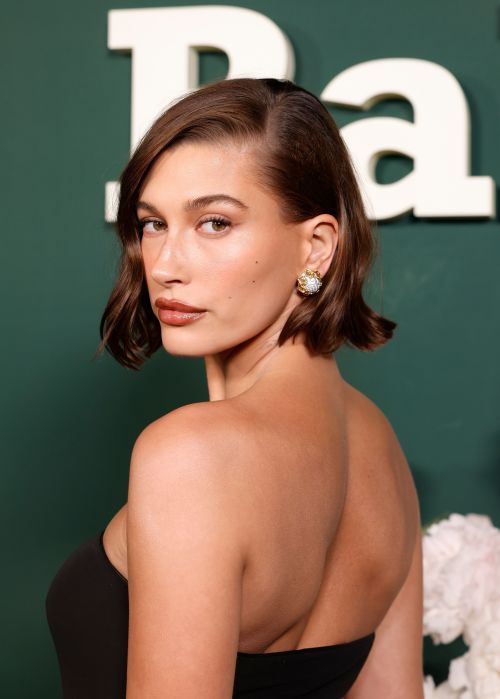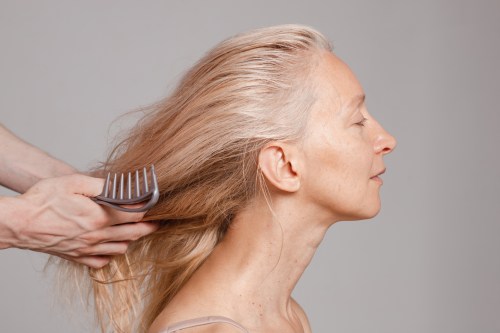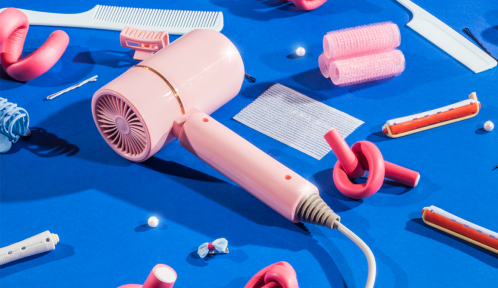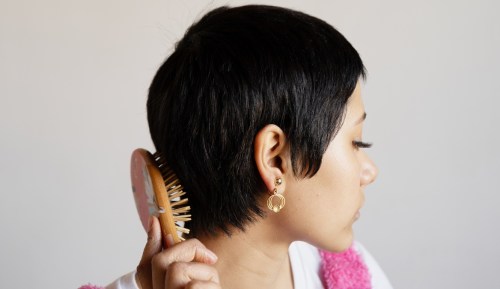You can’t have healthy hair without having a healthy scalp. Using products that keep your scalp clean and balanced is key, but the process doesn’t stop there. You also want to eat foods that support scalp health, explains Helen Reavey, a trichologist (aka certified scalp expert) and celebrity hairstylist.
Experts in This Article
certified trichologist and founder of Act+Acre
nutritionist and registered dietitian based in San Francisco, California
“When you’re low in a particular mineral or a nutrient, what you do have goes to protect every other organ in your body and feed them and give them nutrients,” says Reavey, who is also the founder of hair-care brand Act+Acre. “Obviously, your organs need it more, so your skin, hair, and nails are the last to get it.”
And when your scalp doesn’t have the necessary nutrients, it can’t function at its best, says Sonya Angelone, MS, RDN. “The scalp is basically skin on your head. And, as with skin on the rest of your body, it needs certain nutrients to stay healthy.”
Below, Angelone and Reavy share some of the best foods for scalp health.
8 best foods for scalp health
1. Water
Water isn’t technically food, but it is something that you should ingest for the sake of your health. “Skin needs to stay well-hydrated for good blood circulation and to maintain its integrity,” says Angelone. To make sure you’re getting enough water, she says to drink about half your weight in ounces of water. So if you weigh 150 pounds, you need 75 ounces of water (about 10 cups) a day.
2. Yogurt
“Vitamin A is important to produce sebum, an oil that helps keep the scalp moisturized and hair healthy,” says Angelone. “Good sources are animal products and fortified foods. Concentrated amounts are found in liver, fish oil, milk, yogurt, and eggs. Some ready-to-eat cereals and shakes also contain vitamin A. Fruits and vegetables contain beta-carotene, a precursor to vitamin A.”
3. Strawberries
“Vitamin C is important to create collagen, the protein needed to produce keratin, the major protein that makes up hair,” says Angelone. “Vitamin C can also help your scalp produce natural oils in the sebaceous glands leading to a moister scalp. Good sources of vitamin C include strawberries, bell peppers, citrus fruits, and kiwi.”
4. Brazil nuts
“Brazil nuts are very high in selenium,” says Reavey. Selenium is a trace mineral that is antioxidant-rich and helps to stave off inflammation. Many scalp conditions like seborrheic dermatitis and psoriasis are inflammatory, so reducing inflammation can help with these conditions. Just make sure you don’t overdo it on selenium, as too much of it can actually lead to hair loss. “Two of those a day is all you need,” says Reavey.
5. Avocados
“A dry, flaky scalp can result from dry skin or a lack of essential fatty acids like omega-3 fatty acids,” says Angelone. “Staying well-hydrated and eating enough omega-3 fatty acids can help support optimal scalp health and alleviate dandruff, psoriasis outbreaks, and dry skin.” Great sources of omega-3s include avocados, salmon, tuna, flaxseeds, chia seeds, and walnuts.
6. Salmon
“Vitamin D can help with psoriasis, a condition that leads to inflammation and scaling of the skin with burning and itching,” says Angelone. “Since this is a disease of the immune system, maintaining a healthy level of vitamin D may help. Vitamin D may also help prevent cells from rising to the surface too quickly resulting in patches of skin with silvery scales. Food sources include fortified milks, salmon, and eggs. ”
7. Eggs
“Iron is probably one of the most important minerals for hair loss and hair growth,” says Reavey. Angelone explains that’s because “iron is important to help red blood cells carry oxygen to the scalp for healthy hair growth. Iron can be found in meat, eggs, seafood, and iron-fortified breads, pasta, and cereals.”
8. Beans
“Protein is always important for healthy skin including the scalp,” says Angelone. “Hair is made up of protein so a deficiency can lead to hair loss. Protein-rich foods include meat, seafood, eggs, dairy, soybeans, beans and lentils, and quinoa.”
Sign Up for Our Daily Newsletter
Get all the latest in wellness, trends, food, fitness, beauty, and more delivered right to your inbox.
Got it, you've been added to our email list.
